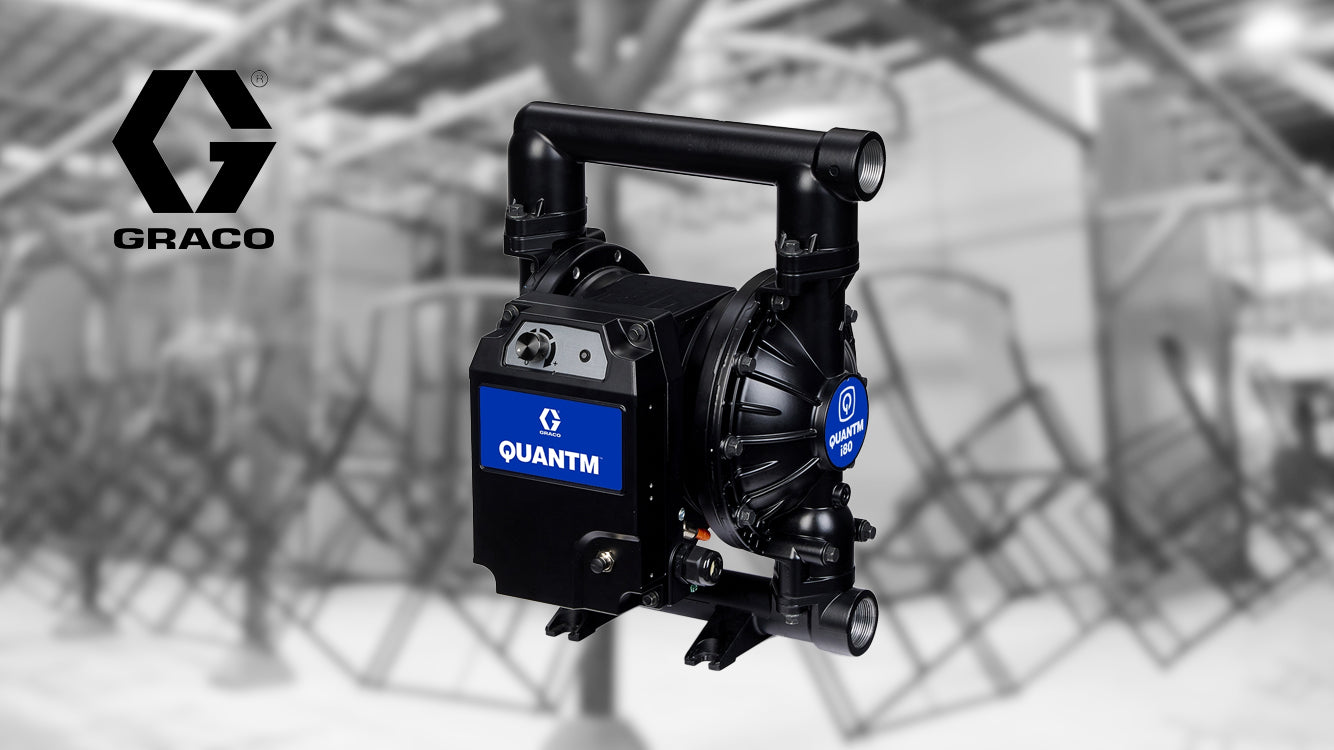In furniture manufacturing, material transfer is a critical process that impacts productivity, operational costs, and overall efficiency. Whether moving cleaning agents, coatings, or other industrial fluids, reliable and energy-efficient equipment is essential to keep production lines running smoothly. This is where Graco QUANTM™ Electric Operated Double Diaphragm (EODD) pumps shine.
Designed with cutting-edge technology, Graco QUANTM™ pumps deliver unmatched energy efficiency and reliability for fluid transfer applications. Let’s explore how these pumps can help furniture manufacturers reduce costs while improving performance.
The Energy Challenge in Material Transfer
Material transfer processes in furniture manufacturing often rely on traditional air-operated double diaphragm (AODD) pumps. While effective, these pumps require compressed air systems, which are notoriously energy-intensive and inefficient. Compressed air systems account for significant energy losses during compression and distribution, leading to high operational costs.
For manufacturers seeking to optimize their fluid handling operations and reduce energy expenses, transitioning to an electric-operated solution like the Graco QUANTM™ EODD pump is a smart move.
How Graco QUANTM™ Pumps Deliver Energy Savings
1. Electric Efficiency
Unlike AODD pumps that rely on compressed air, Graco QUANTM™ pumps use an electric motor to drive their diaphragm operation. This design reduces energy consumption by up to 80%, providing substantial cost savings over time.
2. Optimized Performance
Graco QUANTM™ pumps deliver consistent flow rates and pressure without the need for constant adjustments or air pressure monitoring. This ensures efficient material transfer with minimal energy waste.
3. Quiet Operation
The electric-powered design of QUANTM™ pumps significantly reduces noise levels compared to traditional air-operated systems. This creates a quieter and safer working environment for operators.
4. Reduced Maintenance Costs
Compressed air systems often require frequent maintenance to address leaks and inefficiencies. By switching to an electric-operated pump like the QUANTM™, manufacturers can reduce maintenance requirements and associated costs.
Applications of Graco QUANTM™ Pumps for Material Transfer
Efficient Fluid Movement
The Graco QUANTM™ pump excels at transferring a wide range of fluids commonly used in furniture manufacturing, including cleaning agents, coatings, and industrial chemicals. Its precise flow control ensures smooth operation while minimizing waste.
Simplified Bulk Transfer
For factories handling large quantities of fluids, the QUANTM™ pump provides a reliable solution for bulk transfer applications. Whether moving materials from storage tanks to production lines or between workstations, this pump delivers consistent performance without interruptions.
Handling Diverse Fluids
The robust construction of Graco QUANTM™ pumps allows them to handle various fluid types with ease, including low-viscosity liquids and abrasive chemicals. This versatility makes them ideal for furniture manufacturers managing multiple fluid transfer needs.
The Financial Benefits of Energy Efficiency
The cost savings offered by Graco QUANTM™ pumps go beyond reduced energy consumption. By improving operational efficiency and minimizing downtime, these pumps deliver a high return on investment (ROI) for furniture manufacturers. Their durable design also ensures long service life with minimal maintenance requirements.
| Benefit Area | Typical Improvement |
|---|---|
| Energy Consumption Reduction | Up to 80% |
| Maintenance Costs | Reduced by 50% |
| Total Cost of Ownership | Significantly Lowered |
Sustainability Benefits for the Furniture Industry
Sustainability is becoming increasingly important in the furniture industry as manufacturers strive to meet environmental goals and appeal to eco-conscious consumers. By adopting Graco QUANTM™ pumps for material transfer applications, manufacturers can significantly reduce their carbon footprint through lower energy usage and reduced emissions from compressed air systems.
This aligns with industry trends toward greener production practices while enhancing brand reputation among environmentally conscious customers.

